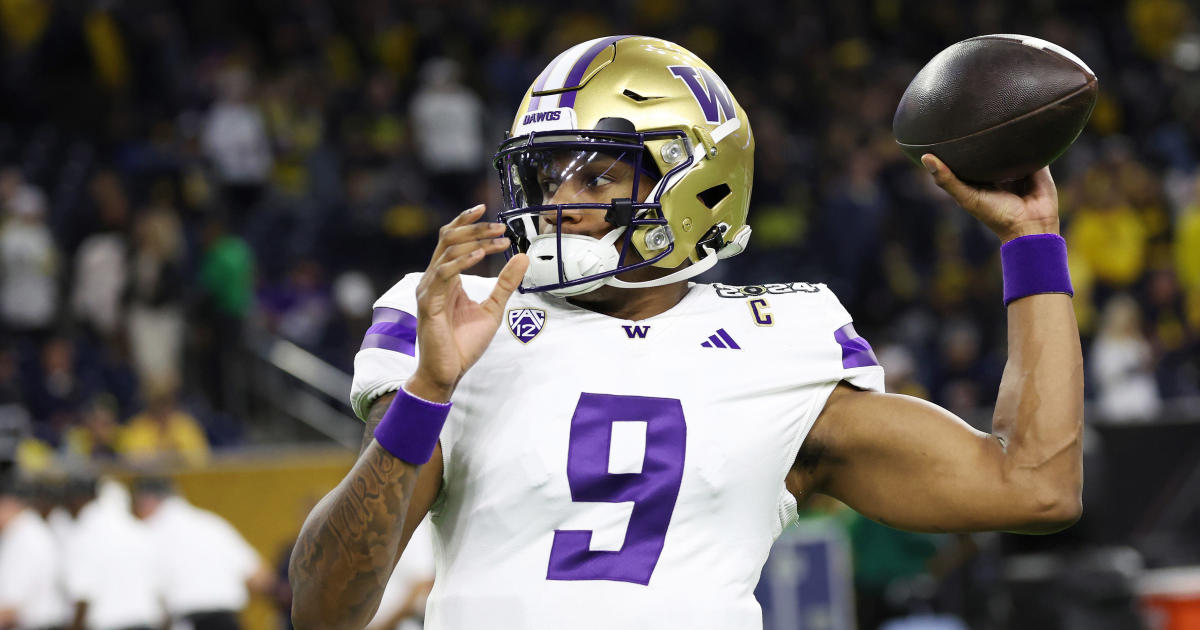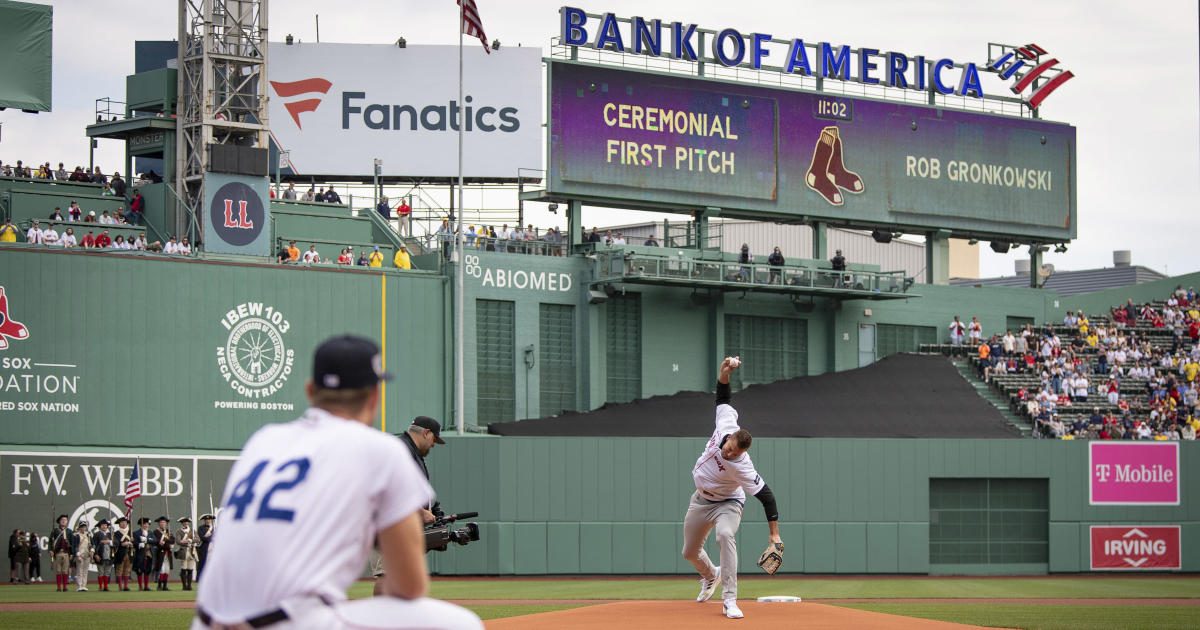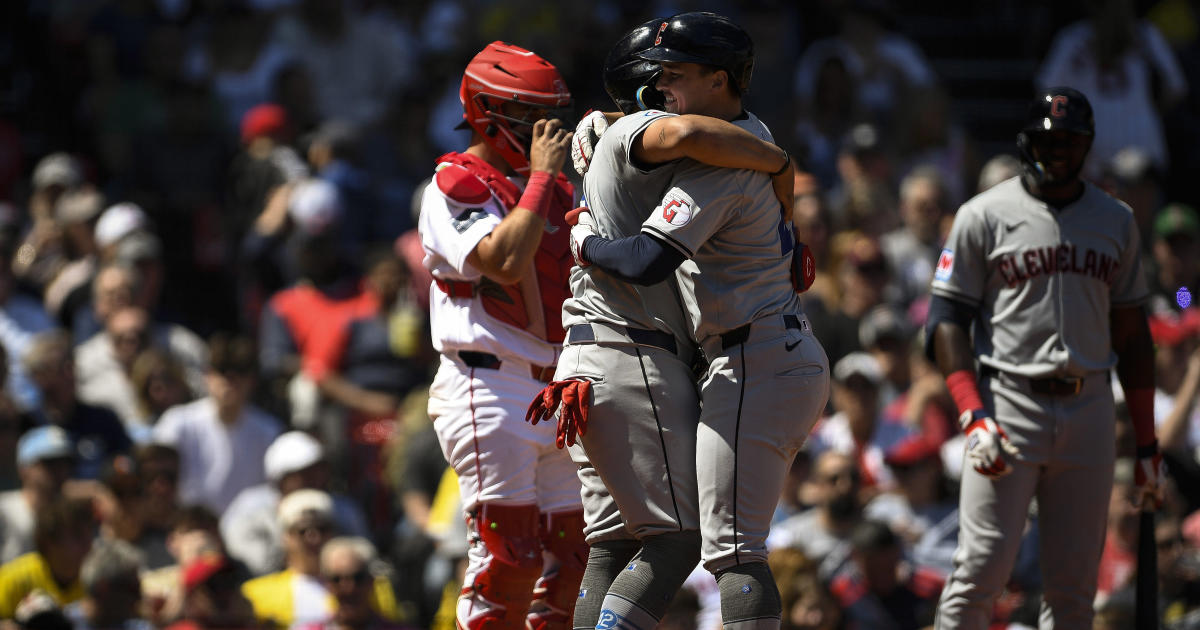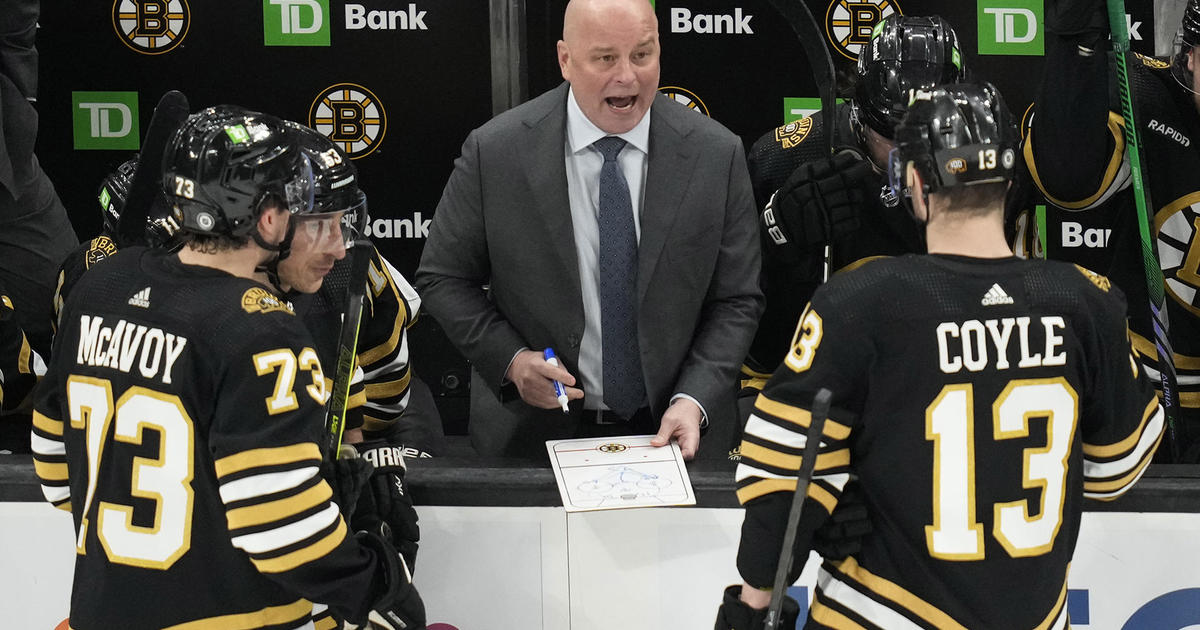Hurley: With Tom Brady's Appeal Hearing Concluded, We Now Wait On Roger Goodell
BOSTON (CBS) -- In a months-long saga where nothing has developed at even a remotely reasonable pace, the fact that Roger Goodell, Tom Brady, the NFLPA and their merry band of lawyers were able to complete their entire appeal hearing in one day is nothing short of a minor miracle.
Yes, it took 10 hours, plus a lunch break. But it is over.
Given the way the two sides have spent the past two months posturing, exchanging written letters intended for public consumption, and issuing vague legal threats, it certainly seemed as though hours upon hours of nitpicking the CBA was on tap for Tuesday's meeting in New York City.
Yet it appears that both sides were able to play nice -- at least, nice enough to actually move through proceedings -- with Brady taking the significant step of testifying under oath.
From a pure optics standpoint, this move should work to quiet the national (and local) criticism of Brady for his refusal to hand over his private records during Ted Wells' investigation. Though there were a number of viable reasons for Brady to not hand over any of his private phone conversations or records, the refusal nevertheless painted Brady as a person with something to hide to many who followed the case. That's despite the fact that Brady sat down with Wells' team for several hours and answered every question asked to him. Wells concluded that Brady was lying.
Now, that charge loses most of its steam, as Brady opened himself up to the possibility of perjury charges if he told any lies under oath. It was a savvy move by Brady's camp, and if the quarterback indeed had nothing to hide, this testimony will be used in any future court proceedings if Brady decides to go that route. Despite the fact that Goodell -- who is neither a judge or an attorney -- was presiding over the hearing, sworn testimony is sworn testimony.
As for the rest of the hearing, it's unknown exactly what took place. But given how easily even amateur observers could pick apart the gaping holes in the Wells report, it is a fair assumption to say Jeffrey Kessler and Co. prepared a pointed and strong case for Brady's defense. With Wells present at the hearing and therefore available to try to defend his work, any interaction between Kessler and Wells had to have been the most dramatic moments of the hearing.
It remains difficult to believe that Goodell could remain truly impartial throughout the process, as there is a great deal at stake for the commissioner -- both in terms of public perception as well as the power bestowed upon his position. On the latter concern, Goodell has to be aware that if a court eventually rules that he has abused his power as commissioner, then the union can build a case to lessen the commissioner's influence and power in certain situations. Certainly with his track record in other appeals (and his shaky performance when testifying under oath), Goodell would likely very much prefer this matter not be advanced to a courtroom.
But on the other side of that desire is Goodell's insistence on "integrity." The entire case against Brady and the Patriots has been built on "integrity," a word Goodell repeats as often as possible whenever speaking publicly about the league. Additionally, the Wells-led investigation itself is something by which Goodell has stood. And so in lessening or removing Brady's suspension, the commissioner would be discrediting an NFL-sponsored investigation and report which was used as the basis for Goodell's punishment and was trumpeted as a thorough, fair document ... one written with integrity.
And lastly, any reduction of punishment would be Goodell admitting his own fault, something he previously has only done when facing an avalanche of national criticism for his handling of the Ray Rice situation. And even then, after admitting he "didn't get it right," he still lied in an effort to save his own face. Clearly, owning up to poor decision-making is not an integral part of Goodell's makeup, so it would be a break of character for him to do so now.
And to be clear, this would be Goodell admitting his own mistakes -- not Ted Wells' mistakes, and not Troy Vincent's mistakes. Goodell initially painted the punishment as a decision made by Vincent and "authorized" by Goodell. He stated this in the announcement of the punishment and reiterated it when speaking in San Francisco at the owners' meetings.
"Our staff – led by Troy Vincent, who handles these matters on a regular basis and has all spring – immediately began meetings," Goodell said on May 20. "I participated in some of those meetings so I understood the discussion that they were having. Troy made a recommendation. I authorized him to go ahead and issue that as I do in every other case."
The message was clear: Goodell played a minimal role in the meetings which determined the punishment, and he trusted Vincent's recommendation enough to give Vincent the power to inform Brady and the Patriots of their punishment.
Yet when challenged by the NFLPA that such a process violated the CBA in that the commissioner cannot delegate his power to any other official, Goodell's story changed.
This punishment suddenly became something Goodell had to own.
"There can be no dispute that this is an appeal of Commissioner discipline," Goodell wrote on June 2. "I did not delegate my disciplinary authority to Mr. Vincent; I concurred in his recommendation and authorized him to communicate to Mr. Brady the discipline imposed under my authority as Commissioner."
And so it is, that if Goodell does reduce the suspension, he is admitting that the process by which he determined an unprecedented punishment of the reigning champions of his league as well as perhaps the most prominent player in the sport was flawed. That is something that won't go unnoticed by all 32 teams and every single player in the NFL.
From late January through late June, most every prediction regarding DeflateGate has proven to be rather useless. It's been a bizarre event from the very start. Yet in trying to grasp what's at stake for both sides, I think one of the following two scenarios comes as a result of the hearing.
Scenario 1: Goodell, sensing that Kessler and the NFLPA will settle for nothing less than a complete removal of the four-game suspension, maintains his original punishment of four games. There would be little need to endure the aforementioned admission of fault if the commissioner felt the case would eventually move on to the courts anyway. Plus, admitting that fault would hurt Goodell's case in any court proceeding, especially when Brady's sworn testimony is considered.
Scenario 2: Goodell lessens the punishment to one game, thereby putting the pressure on Brady. Though the quarterback's lawyers may be frothing at the mouth to fight this thing all the way to the end, a reduction of the suspension to just one game would put Brady in a tricky predicament.
Would it be worth it to spend the next six months -- or longer -- with the weight of the court case hanging over his head, when he could just simply miss one game and have everything go away after just a seven-day break from football?
To be sure, missing opening night at home after winning the Super Bowl -- and missing any playing time, for that matter -- is a most unappealing choice for Brady. The acceptance of a one-game suspension would also be considered an admission of guilt by anyone who wanted to interpret it as such, as well. But might that one-week ban be a more appealing option than dragging this saga on with no real end in sight?
Certainly, a reduction of that suspension to just one game would be Goodell's way of applying the most pressure on Brady to make a decision, while also maintaining the commissioner's power to a satisfactory degree.
Sadly, I believe those reasons will factor in to the commissioner's decision more so than the evidence, arguments or precedence will. And that's why if I had to make a prediction on Goodell's decision, it would be dropping that Brady suspension down to just one game.
At that point, the ball would be solely in Tom Brady's court. What he would do then -- with pressure from the union, his team, and his own personal desires pushing in different directions -- only Brady himself can know.
Read more from Michael Hurley by clicking here. You can email him or find him on Twitter @michaelFhurley.



